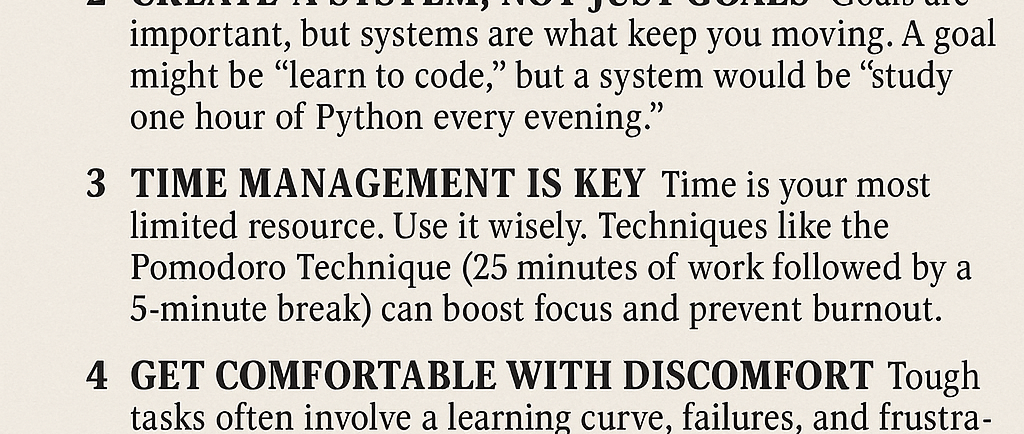Mastering the Toughest Tasks: A Guide to Overcoming Challenges


In every pursuit—academic, professional, or personal—there comes a time when you’re faced with a task that feels too daunting, too complex, or simply overwhelming. Whether it’s launching a business, writing a book, or learning a new skill, these tough tasks often test not just your ability, but your mindset. Mastering them isn’t about innate talent—it’s about strategy, discipline, and resilience.
1.Break It Down
One of the biggest reasons tasks feel difficult is because we view them as one giant, insurmountable mountain. Instead, break the task down into smaller, manageable steps. For example, writing a book becomes easier when viewed as writing one page a day. Breaking tasks into chunks not only makes them less intimidating but also gives you small wins to celebrate, keeping motivation high.
2.Create a System, Not Just Goals
Goals are important, but systems are what keep you moving. A goal might be “learn to code,” but a system would be “study one hour of Python every evening.” Systems create habits, and habits build momentum. When you consistently follow a process, the task becomes part of your routine rather than a distant challenges
3.Time Management is Key
Time is your most limited resource. Use it wisely. Techniques like the Pomodoro Technique (25 minutes of work followed by a 5-minute break) can boost focus and prevent burnout. Prioritize your most difficult task when your energy is highest—usually at the beginning of the day.
4.Get Comfortable with Discomfort
Tough tasks often involve a learning curve, failures, and frustration. This is normal. Rather than avoiding discomfort, embrace it as a sign of growth. The more you get used to pushing through mental resistance, the easier it becomes to tackle difficult challenges
5.Seek Help and Feedback
No one masters anything alone. Don’t be afraid to ask for help, consult mentors, or use communities related to your task. Feedback—especially when it’s constructive—can accelerate progress and help you avoid common pitfalls.
6.Visualise Success
Your mindset plays a huge role. Visualizing the outcome you want can increase confidence and focus. Athletes, performers, and top executives all use visualization techniques to mentally prepare for high-pressure situations.
7.Track Progress and Reflect
Keep a journal or digital tracker of your efforts. Seeing progress—even if it’s small—can keep you motivated. Reflecting on what’s working and what’s not also allows you to adjust your approach as needed.
8.Celebrate Small Wins
Every step forward is a victory. Celebrating even the smallest milestones helps reinforce positive behavior and keeps your energy up for the long haul.
In conclusion, mastering tough tasks isn’t about brute force—it’s about intelligent strategy and persistence. By breaking down the work, creating consistent habits, managing time effectively, and staying mentally resilient, you can transform even the most intimidating challenge into a series of achievable steps. With the right approach, there’s no task too tough to conquer.
